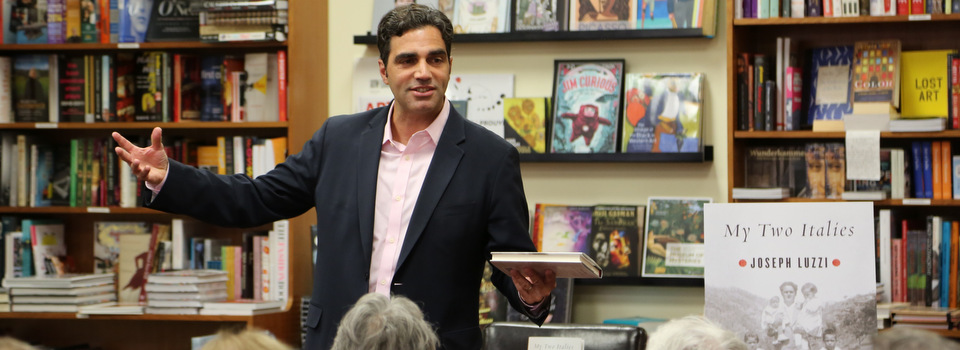 Stories of immigrants fascinate me, especially the life stories of Italians who have come to “l’America”, both North and South, since the 1700s. In each of these stories I see elements of my own story, that of leaving my birthplace and family and creating a new life in a different culture and in a different language.
Stories of immigrants fascinate me, especially the life stories of Italians who have come to “l’America”, both North and South, since the 1700s. In each of these stories I see elements of my own story, that of leaving my birthplace and family and creating a new life in a different culture and in a different language.
Born in the U.S. with poor Calabrian parents who had recently emigrated as what we would call today “economic refugees,” Giuseppe (Joseph) Luzzi struggled since childhood, to create or find his own identity. Even more problematic for him was “which” Italy to “choose,” the one he inherited from his family, poor and linked to peasant traditions and customs he finds crude and somewhat barbaric, or the one he finds in literature and art books that show him a country with a refined and sophisticated literary culture.
The choice becomes even more poignant as in his professional life he becomes a scholar of Italian literature and culture. He recounts episodes of his youth that describe the clash between first and second generation immigrants that are both funny and tragicomic. These episodes highlight the daily customs his parents brought from Calabria that are in conflict with Joseph’s desire to “fit in” the American culture. Joseph’s visits to Italy as a student and then as a scholar deepen the divide between his two Italies and accentuate his quest for identity.
The author’s personal vicissitudes are interspersed with quotes from Dante, Leopardi, Foscolo, Manzoni and Shelley, as well as with lengthy recounts of and comments on the cultural and political landscape of Italy from Dante to Berlusconi. I found particularly interesting Luzzi’s interviews with Pertini, founder of the Slow Food movement, and with ex-Prime Minister Romano Prodi, which provide insights on contemporary Italian cultural and political phenomena. In this book Luzzi touches on or comments in depth about several issues concerning Italian life: the relationship between regional dialects and the language chosen by Dante as the official “Italian” language; the Southern “question” or the uneasy interaction between Northern and Southern Italians; the somewhat mysterious ascent to power of megalomaniac Berlusconi and the perennial divide between the corrupted and individualistic Italy and its creative, artistic and vivacious alter ego.
I enjoyed reading this book. It is an intimate, moving, educational and entertaining. I hope you will enjoy it too!


